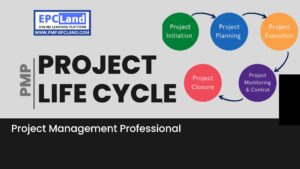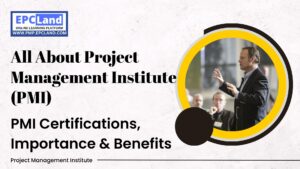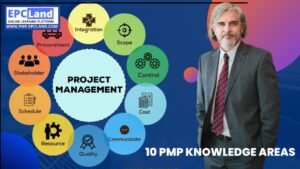The term “project manager” is so broad that it encompasses many different tasks and means different things to different people. So what is the typical job description of a project manager? A project manager is responsible for overseeing a project from start to finish. A project manager’s responsibilities include:
- project planning
- Create schedules and timelines
- Execution of each phase
- manage your budget
- Act as a liaison between all parties involved
- Troubleshooting and maintenance
A project manager should be highly organized, detail-oriented, and have excellent interpersonal skills. Ultimately, they are responsible for leading the team and communicating clearly and regularly with all stakeholders.
Table of Contents
ToggleWhat is the role of a project manager?
The Project Management Institute describes the role of the project manager as that of change agent. You are someone who “owns project goals and uses your skills and expertise to inspire a sense of shared purpose within project teams.” A project manager is a leader. Not only do you need to ensure your project is delivered on time and on budget, but you also need to involve and motivate your team and inspire your clients. Strong critical thinking skills to solve problems as they arise and fine-tuned communication skills to ensure everyone is informed, motivated and onboard (e.g. customer service tips) ) is required. No wonder project managers are considered vital to a company’s success.
Attempt Quiz-1: Test your Knowledge on Role of Project Manager

Time's up
What are the responsibilities of a project manager?
Common tasks for a project manager include:
Plan:
The project manager is responsible for developing a plan for achieving project goals within the approved budget and schedule. This blueprint guides your project from idea to realization. This includes project scope, required resources, estimated time and budget requirements, communication strategy, execution and documentation plan, and follow-up and maintenance suggestions. This plan serves as an important part of the pitch to key decision makers if the project has not yet been approved. lead:
An important part of the project manager’s role is to assemble and lead the project team. This requires good communication, people, leadership skills, and a keen eye for the strengths and weaknesses of others. Once the team is created, the project manager assigns tasks, sets deadlines, allocates the necessary resources, and meets regularly with members. The ability to speak openly and frequently with all stakeholders is very important.
Execution:
The project manager participates in each phase of the project and oversees the successful completion of each phase of the project. This also requires frequent and open communication with project team members and stakeholders.
Time management:
Sticking to a schedule is essential to completing a project, and time management is one of the primary responsibilities of a project manager. The project manager is responsible for fixing defects, communicating effectively with team members and other stakeholders, and getting the project back on track. Project managers need to be experts in risk management and contingency planning to keep moving forward even when setbacks occur.
Don’t Miss the 1000+ MCQ questions & hundreds of quizzes on PMP Knowledge Areas and Various important sections.
Budget:
A project manager creates a project budget and adheres to it as closely as possible. If certain parts of the project cost more than expected (or less in a perfect world), the project manager will adjust spending and redistribute funds as needed.
Documentation:
Project managers must develop effective methods for measuring and analyzing project progress. Common strategies for project documentation include data collection, verbal and written status reports. It is also the project manager’s job to ensure that all relevant actions are approved and these documents are archived for future reference.
Maintenance:
The job doesn’t end when the project is completed. A plan for ongoing maintenance and troubleshooting is required. Project managers develop ways to adequately support future end results without directly overseeing day-to-day operations.
What do project managers do?
You may be wondering, “What does a project manager do on a daily basis?” Every project is different, so no two days are the same for him. The project manager’s job is to drive the project forward and pave the way for the success of her team members. This includes daily:
- Respond to emails related to project execution or maintenance
- Meeting with team members for progress reports and working on new issues
- Communicate with clients or other stakeholders to keep up to date on project progress
- Review of relevant documentation to assess budget, schedule, and scope
- Dealing with project changes by reassigning resources, including team members
What Makes a Good Project Manager?
A good project manager delivers a final product on time, on budget, and that meets or exceeds stakeholder and customer expectations. Linking projects to business goals is becoming increasingly important for project managers. To ensure that your project has a strategic impact on your business needs, it’s important to reach out to your stakeholders first.
The traits that define a successful project manager are organizational skills, precise attention to detail and ability to see the big picture, resourcefulness, risk management skills, critical thinking, good communication skills, and a can-do attitude. Attitude, and the ability to inspire. and motivate. The Project Management Institute also points out that being open to self-evaluation and re-evaluation can set project managers up for success.
Don’t Miss the 1000+ MCQ questions & hundreds of quizzes on PMP Knowledge Areas and Various important sections.
























